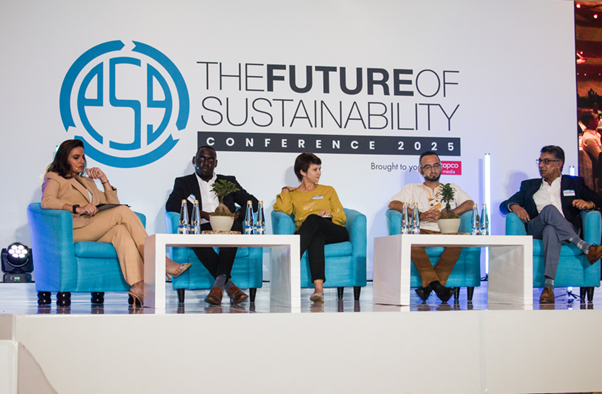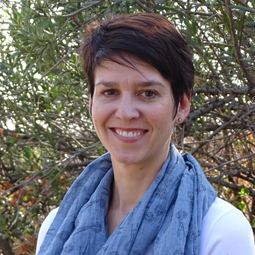Advocating for a circular approach at Future of Sustainability Conference
Council for Scientific and Industrial Research (CSIR) senior researcher Dr Lorren Haywood shared impressive insights into the organisation’s innovative approaches to sustainable waste management, resource efficiency and environmental resilience while serving as a panellist at this year’s The Future of Sustainability Conference 2025.
Council for Scientific and Industrial Research (CSIR) senior researcher Dr Lorren Haywood shared impressive insights into the organisation’s innovative approaches to sustainable waste management, resource efficiency and environmental resilience while serving as a panellist at this year’s The Future of Sustainability Conference 2025. The conference was held at Emperors Palace in Johannesburg from 26 to 27 March, where strategies to leverage the circular economy and address Africa’s sustainability challenges were deliberated.
“In our circular economy research at the CSIR, the goal is to prevent waste from being generated in the first place. This means rethinking the entire production and consumption systems, ensuring resources remain in circulation for as long as possible,” expresses Haywood. This approach implies that the focus should be directed at upstream interventions such as redesigning products, rethinking production systems and ensuring resources remain in use for longer. Midstream strategies like repairing, reusing, reducing and repurposing further support this transition. “Recycling is important, but it is the last of the ‘Rs’ and is not the answer—it is one part of the solution. A truly circular economy starts with redesigning systems to eliminate waste from the outset,” she explains.
The CSIR has identified digital economy opportunities within the circular economy, including platforms that facilitate reuse, sharing and product lifecycle management, from which South Africa can leverage innovations to enhance the circular economy without over-relying on costly imported technologies.
Haywood shared key learnings gained in the circular space, with interesting insights on lessons Africa can learn from global circular economy initiatives. Increasingly, innovative capabilities are required to manage the global waste crisis and the environmental issues associated with it, including the idea that the circular economy is about sustainable resource management and requires a fundamental shift in how resources are extracted and used and how products and services are designed. “We need to shift from managing waste linearly and adopt the circular economy approach, which includes resource management,” she says. “The circular economy is not just about waste management, nor is it solely about plastic waste. It is growing into something significantly greater than this!”
Several lessons learnt from initiatives and innovations that are being implemented on the African continent made it to the agenda. The conference also focused on South Africa’s Extended Producer Responsibility programmes and regulations that encourage manufacturers to design products that curb waste generation.
“My key message to the delegates was for them to understand the difference between dealing with the waste management crisis versus redesigning products such that we eliminate waste from the onset,” Haywood says. “We need to redesign our products and processes such that we eliminate waste from the outset.”
Energy demands to meet current and future needs are facing a crucial juncture, and delegates discussed actionable solutions for a more sustainable African continent and pioneering waste solutions. Recommendations for policymakers, businesses and communities to accelerate the transition towards a fully circular and regenerative economy in Africa were tabled. Currently, South Africa and other African countries stand to benefit more from circular economy initiatives beyond environmental sustainability measures. In this context, government departments can provide economic and industrial policy bodies to integrate circular economy principles into broader economic planning.




